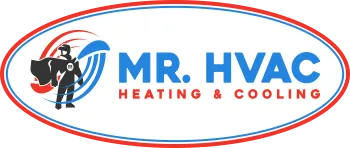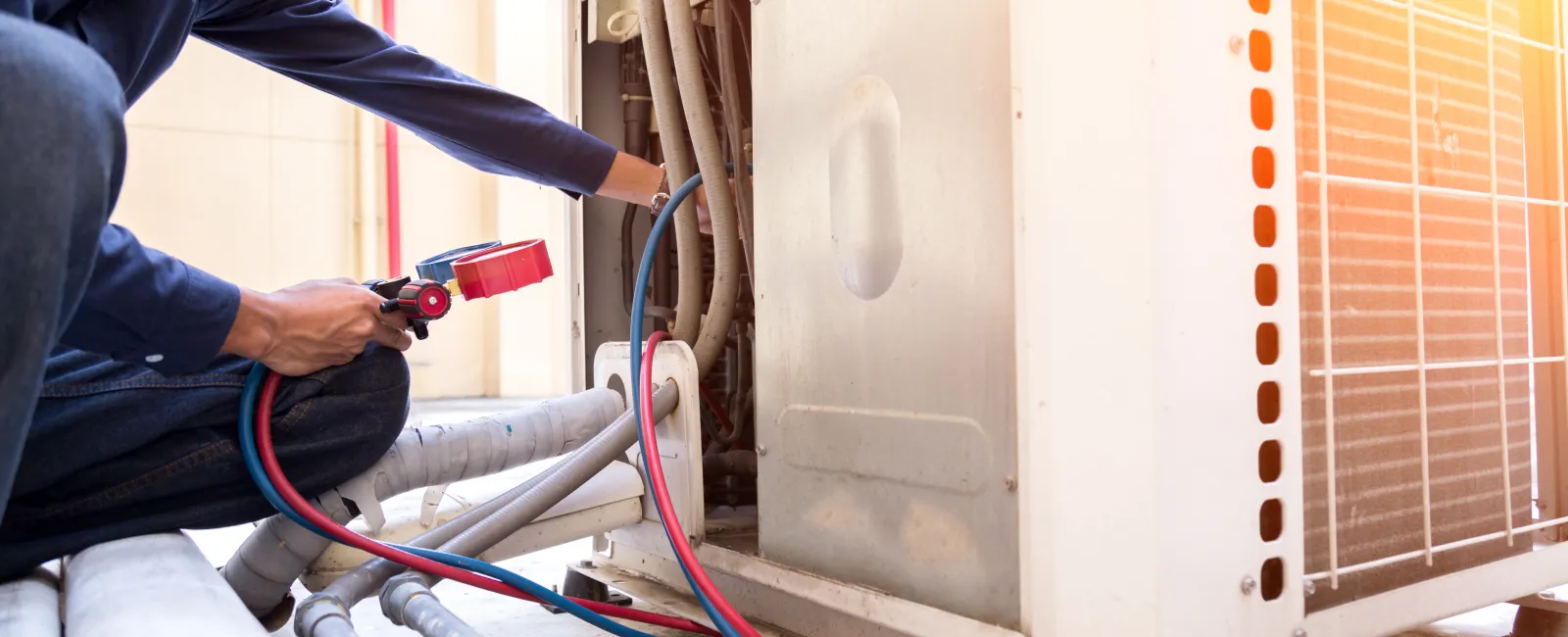July 21, 2025
Choosing the right air conditioner is about more than just picking a popular brand or finding the best deal. The size of your AC unit is crucial, particularly in terms of cooling capacity. An undersized air conditioner can't meet the demands of your home, leading to poor performance and system strain. So, how can you tell if your cooling problems are related to an improperly sized unit?
Recognizing the Symptoms of an Undersized AC Unit
The first step in diagnosing an undersized AC unit is recognizing the signs. Most homeowners assume a malfunctioning system is to blame when, in reality, the issue is with the unit's capacity, not its condition. Here are some of the most common undersized AC unit symptoms that could indicate your air conditioner is too small for your space.
Your AC Runs Constantly But Still Doesn't Cool
If your system is running for long periods of time and the indoor temperature barely changes, it's likely because your undersized air conditioner is overworking to meet the thermostat's demand. While it might eventually cool the space down at night or on cooler days, it struggles in peak heat. This nonstop operation also causes wear and tear, increasing the risk of premature failure.
Certain Rooms Stay Hot No Matter What
Uneven temperatures, particularly in rooms that are farther from the thermostat or get more sun exposure, are a red flag. An AC unit too small for the house may only be able to cool part of your home effectively. This often leads to hot spots, especially upstairs or in larger open-concept spaces.
You Experience High Humidity Levels Indoors
One of the lesser-known jobs of your air conditioner is humidity control. If your home feels damp or sticky even when the AC is running, your undersized air conditioner might not be operating long enough in a single cycle to properly dehumidify the air. Excess indoor humidity can create comfort issues and contribute to mold and mildew.
Frequent Thermostat Adjustments
Are you constantly adjusting the thermostat in search of a more comfortable temperature? That's another sign your cooling system isn't sized correctly. If the system can't maintain the temperature you're setting, it could be too small to deliver the output needed for your square footage.
Why Proper AC Sizing Is So Important
The size of your AC system is measured in BTUs (British Thermal Units) or tons. One ton equals 12,000 BTUs of cooling capacity. However, bigger isn't always better, and smaller is definitely not better either. An undersized AC unit will struggle to cool your home, but it will also increase costs and reduce the lifespan of your system.
A professional HVAC contractor doesn't guess the size of your AC unit based on square footage alone. They perform a Manual J load calculation that takes into account:
Total square footage
Number and size of windows
Insulation levels
Number of occupants
Sun exposure and shading
Ceiling height
Duct layout and condition
If this calculation isn't done, or if it's done incorrectly, it's easy to end up with an AC unit that's too small for your house, especially if the system was installed as part of a rushed build or renovation project.
What Happens If Your AC Is Too Small?
Understanding the risks of running an undersized air conditioner is important for long-term comfort and system efficiency.
Shortened Equipment Lifespan
When an AC unit is too small for the house, it has to work harder and run longer than it was designed to. That puts unnecessary stress on the compressor and blower motor, which can significantly shorten the system's lifespan by several years.
Higher Utility Bills
Longer run times result in increased energy usage. Even though the system itself is smaller and potentially more "efficient" on paper, it ends up costing more to run because it's not doing the job it was intended to do. If your utility bills are unusually high and you're still not comfortable, the problem could be a sizing issue.
Poor Air Quality and Comfort
Inadequate cooling and insufficient humidity control create conditions that lead to poor indoor air quality. That includes excess moisture, stagnant air, and even unpleasant odors. Over time, this can affect your family's health and overall comfort.
How to Tell If Your AC Is the Wrong Size
While the symptoms of an undersized AC unit are usually pretty easy to spot, confirming the issue typically requires a professional HVAC assessment. Still, there are a few signs you can look for on your own.
Your AC Struggles on Hot Days
If your air conditioner can handle mild temperatures but fails to keep up when it's 90+ degrees outside, it might be working at or beyond its capacity.
It Was Installed Without a Load Calculation
If your HVAC contractor didn't perform a Manual J load calculation before installation, there's a high chance the system was improperly sized. Always ask for documentation if you're unsure.
The System Is Old or Part of a Renovation
Older systems or HVAC setups that haven't been adjusted to match additions or remodels can easily be misaligned with your current space. If you've added square footage without upgrading the AC, your system is likely too small.
What Should You Do If Your AC Is Too Small?
If you think your AC unit may be too small for your home, the ideal solution will depend on how undersized the system is, its current age, and the overall layout of your space.
Get a Professional Load Calculation
Before making any decisions, have a licensed HVAC professional perform a Manual J calculation to determine the proper system size. This will help you confirm whether your undersized AC unit is really the root of the problem.
Consider an AC Upgrade
If your system is older or inefficient, upgrading to the correct size might be the most cost-effective long-term solution. A properly sized system will offer better comfort, improved energy efficiency, and lower utility bills.
Add Zoning or Supplemental Cooling
In some cases, adding a ductless mini-split system or zoning can provide targeted cooling to the hottest areas of your home. This can help offset an undersized air conditioner without a full system replacement.
Summary: Don't Ignore the Signs of an Undersized Air Conditioner
If your home isn't cooling evenly, your AC runs all day, and your humidity levels are high, you might be dealing with an undersized AC unit. These systems are common in older homes, renovated spaces, or projects where a proper load calculation wasn't completed. Unfortunately, an AC unit too small for the house will continue to struggle—driving up costs, reducing comfort, and increasing wear on your equipment.
However, a simple professional evaluation can confirm whether your system is the right size. At MR. HVAC, our team helps homeowners identify and solve problems every day. From system diagnostics to replacements, we're here to make sure your air conditioner actually works for your home, not against it.
Ready to find out if your AC is too small? Contact MR. HVAC today for an expert evaluation and personalized solution.




